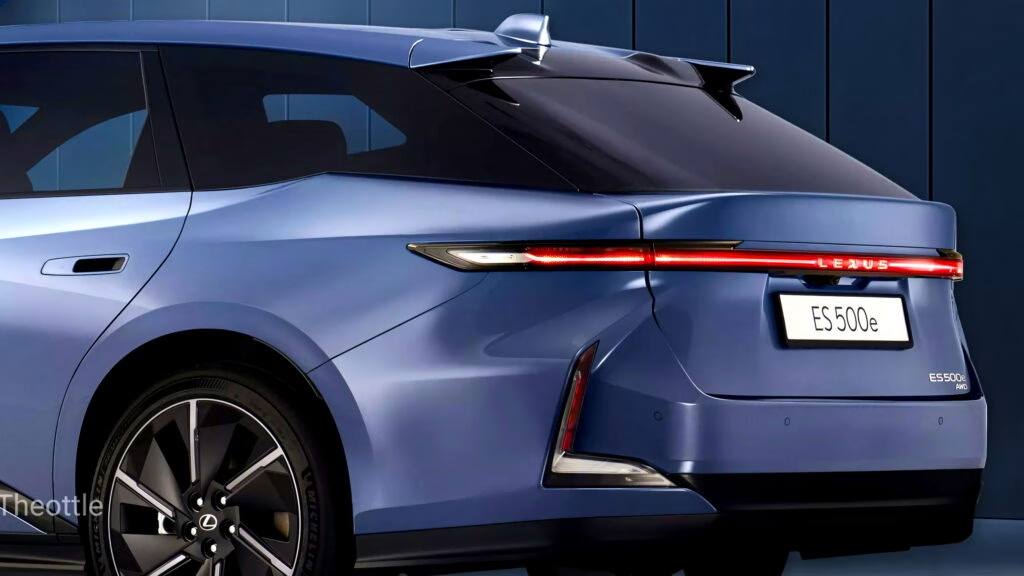What Would a Lexus ES Wagon Look Like Today?
If you’ve ever wondered what a modern Lexus wagon might look like, you’re not alone. Despite wagons fading from most showrooms in favor of SUVs, there’s still a devoted group of enthusiasts who can’t help but imagine what could be. The latest buzz? A digital rendering of the Lexus ES reimagined as a sleek wagon, borrowing design cues from the brand’s electric RZ crossover. Let’s dig into why this concept is turning heads, what makes it unique, and whether there’s any real chance of seeing something like it on the road.
Why Do Some Drivers Still Crave Wagons?
It’s no secret: wagons have become a rare breed, especially in the U.S. But for those who remember the Lexus IS SportCross—the only wagon Lexus ever built—there’s a certain nostalgia that just won’t quit. That five-door model only lasted a single generation, yet it still pops up in conversations among car fans. Why? Because wagons offer a blend of practicality and style that’s tough to match. You get sedan-like handling with the cargo space of a small SUV. For families, road-trippers, or anyone who likes to haul gear without sacrificing driving enjoyment, wagons still make a lot of sense.
How Does the Lexus ES Wagon Concept Stand Out?
Digital artist Theophilus Chin, known for his creative automotive renderings, decided to take the current Lexus ES sedan and give it a wagon makeover. But instead of just stretching the roofline, he infused the design with elements from the all-electric Lexus RZ. The result? A wagon that feels both futuristic and unmistakably Lexus.
Here’s what sets it apart:
– Wraparound glass at the rear, seamlessly merging into the side windows for a visually lighter D-pillar and a cleaner rear profile.
– A less sloped roofline, ending in aerodynamic fins rather than a traditional spoiler—a subtle nod to performance and efficiency.
– The lower rear section borrows from the ES sedan, including the slim LED light bar and integrated ducktail spoiler.
– Crucially, the wheelbase and rear overhang remain unchanged, so the wagon keeps the sedan’s footprint. That means no awkward proportions—just a well-balanced, elegant shape.
What’s Under the Hood? Could It Compete With European Rivals?
The current Lexus ES rides on Toyota’s TNGA-K architecture, which is designed to accommodate both hybrid and fully electric powertrains. If Lexus ever built this wagon, the most logical fit would be the ES 500e trim. We’re talking about a zero-emission, all-wheel-drive setup with a healthy 338 horsepower and a 75 kWh battery, good for an estimated 329 miles (530 km) of range based on WLTP standards. That’s right in the ballpark with competitors like the BMW i5 Touring and Mercedes E-Class Estate.
And here’s the kicker: Lexus has a reputation for reliability and comfort, two things that matter to wagon buyers who rack up the miles. If the ES Sport Cross ever made it to production, it could offer a compelling alternative to the usual German suspects—especially for drivers who value peace of mind as much as performance.
Is There Any Chance Lexus Will Actually Build This?
Let’s be real—Lexus is laser-focused on sedans and SUVs right now. The market for wagons is tiny, especially outside of Europe, and automakers are hesitant to invest in niche models. Still, there’s a glimmer of hope. Back in 2021, Lexus teased a compact EV concept with several body styles, including a shooting brake (that’s car-speak for a sporty wagon). While nothing concrete has emerged since, it shows the brand is at least considering more adventurous shapes for its electric future.
Industry analysts point out that as electric vehicles become more mainstream, brands may experiment with body styles to stand out. According to a 2023 report from JATO Dynamics, wagons still account for about 10% of new car sales in Europe, and there’s growing interest in premium electric wagons. So, while the odds aren’t great, they’re not zero—especially if consumer tastes shift or Lexus wants to make a statement.
What’s the Real Appeal of a Lexus Wagon in 2025?
Beyond the numbers and the nostalgia, a Lexus ES wagon would fill a unique niche. It would offer the comfort and refinement Lexus is known for, the utility of a wagon, and the cutting-edge tech of an EV or hybrid. For buyers who want something different—something that stands out in a sea of SUVs—it’s a tempting proposition.
And let’s not forget: sometimes, the most memorable cars are the ones that break the mold. The IS SportCross may have been short-lived, but it’s still talked about decades later. A new ES Sport Cross could do the same, especially if it pairs Lexus luxury with genuine practicality.
The big takeaway? Chasing the perfect car isn’t about following trends—it’s about finding what fits your life and style. Even if the ES Sport Cross never hits showrooms, the idea itself is a reminder to look beyond the obvious. Who knows? Start with one bold idea, and you might just change the way you see the road by the end of the month.

